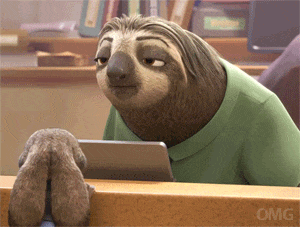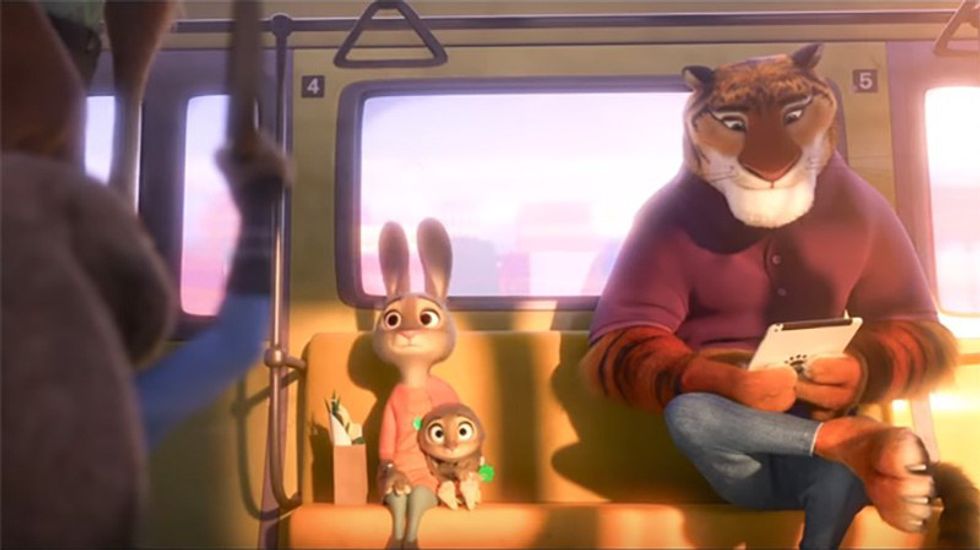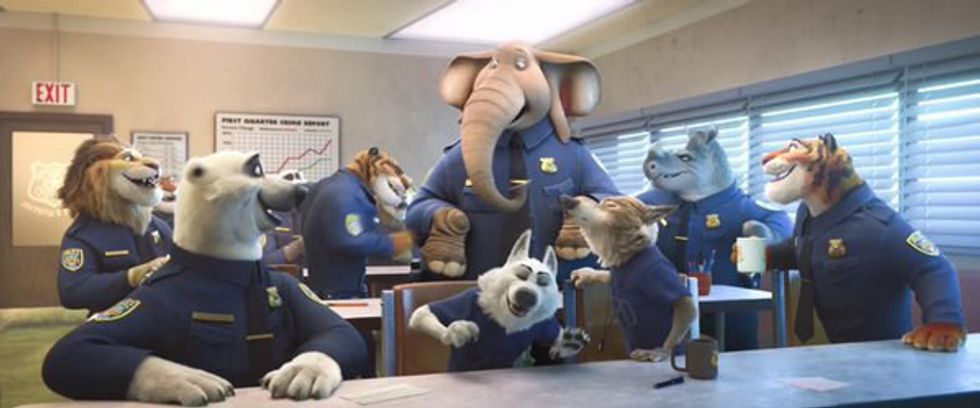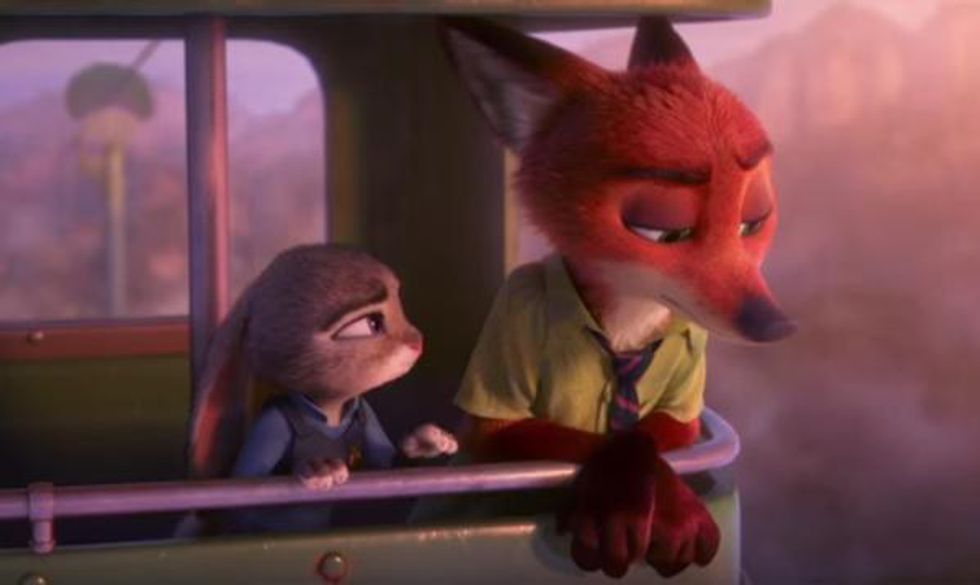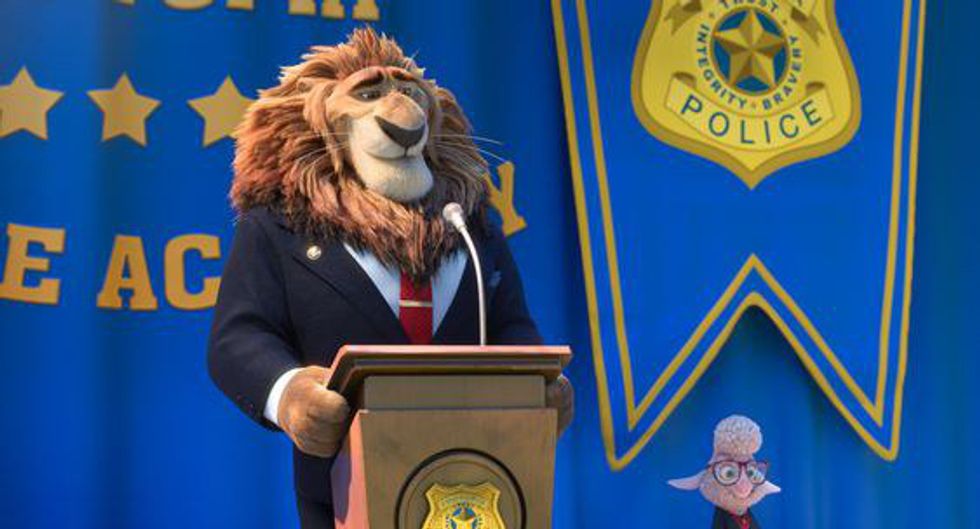Disney's newest film is one of its best in recent years, for deeper reasons than you'd think.
Since Thanksgiving, Disney has been running cute and comedic trailers for their film "Zootopia," the most popular being of the lovably slow DMV worker, Flash.
However entertaining the trailers are, they are a bit misleading, failing to hint at any of the deeper themes of the film. The "children's" film, with anthropomorphic animals, looks like it'll be a comedy. A stereotypical pairing of optimistic, hopeful and wide-eyed bunny cop (Judy Hopps) and sly con artist fox (Nick Wilde) are forced to work together to solve a crime. It is indeed a comedy, but it's also a film about racism and police treatment of minorities.
When predators start to revert to their savage behavior and attack prey, there is mass panic and hatred toward the predator sub-genre or (race) animal. At the height of the racial tension against the predator minorities, a bunny mother pulls her child away from a predator on the train. In another scene, a predator protesting gets harassed as she yells back that she is from the Sahara square and is not a primeval beast. These are strikingly familiar moments in our society. I've personally witnessed countless numbers of times in public where a person would move themselves or their group away from another for seemingly little to no reason besides a different appearance.
As the prey start to target all the predators and high paranoia starts to rise in the city, Judy struggles to explain why this is happening and blames it on biology and the predators inherent aggressive natures, claiming bunnies (and other prey) couldn't go savage.
Another issue tackled is sizeism. In the police force, Judy is the sole rabbit, and is tiny compared to her Hippo/Elephant/Polar Bear/Lion/Rhino/Tiger/Wolf cohorts. They slap her with parking duty and no one takes her seriously.
While sizeism may not be as big of an issue with humans in the workforce, this patronizing of rabbits mirrors sexism issues found in many lines of work. While Judy lives by her motto that "anyone can be anything" as it applies to her career goals (to tackle sizeism), she misses seeing how it applies to predator/prey relations (similar to racism).
What her upbringing has taught her is that predators biologically have aggression built-in, and she fails to see how predators can also be anything. They can be more than what their biology or stereotypes define them as.
However, Nick has a more cynical view on Zootopia. He knows that animals can't be anything they want. He knows that no matter how hard he tries, others will only see him as a cunning, crafty fox, so why should he try to be anything but that?
This dual mentality of prejudice from prey and helplessness from predators to fight the stereotypes makes it so easy for the film's villain to capitalize on the racial divide, gleaming with pride and claiming that "Fear always works."
While fear is great at dividing people, it does nothing for progressing Zootopia's society, nor ours. We are at a key time in our culture where Americans are scared. Scared of the unfamiliar, scared of being hurt, and looking for someone, anyone to lead and protect them.
But we can't let fear allow us to judge others we don't know. We can't let fear let us judge others we don't know. We can't let fear make us blindly believe any figurehead's grandiose vows to protect us, without any real foundation to follow through with it.
It's okay to be scared, but you can't let that fear turn into to hatred. Don't let hatred control how you treat others and the choices you make. Be brave, and be accepting.
Judy figures out the truth that we all can learn from:
Real life is more complicated than "anyone can be anything." It's messy. We all have limitations and make mistakes... and that makes us all pretty similar. The more we understand each other, the more exceptional we will be. But, we all have to try. Try to make the world a place and try to understand each other. Look inside yourself and recognize that change starts with you, me, and all of us.




